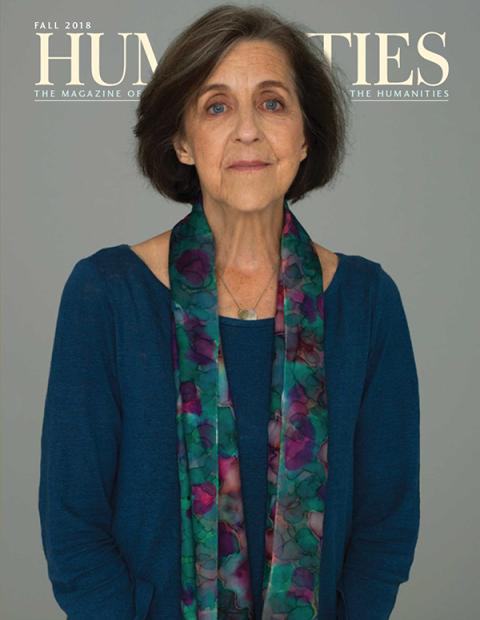Storytellers come in many guises. This year’s Jefferson Lecturer in the Humanities arrives in a lab coat with a literary paperback stuffed in her pocket. She is Rita Charon, an esteemed professor of medicine at Columbia University and a scholar of Henry James. She is also an unusually gifted speaker with an important message: What medicine needs, she says, can be found in the humanities.
Anyone who considers modern health care to be an alienating experience will appreciate her interview with NEH Chairman Jon Parrish Peede. In thoughtful, erudite language, the good doctor administers a bracing dose of warmth and ethical seriousness about the mortal challenges that face all of us, doctor and patient alike. If you would like to attend the lecture, it is taking place on October 15 at the Warner Theatre in Washington, D.C. Tickets are free. Check the NEH website for information.
A story about Napoleon may seem like an oddly chosen second course, but it also represents NEH and its efforts to bring the humanities to all Americans. An NEH Public Scholar, Mark Braude has written an excellent volume called The Invisible Emperor: Napoleon on Elba from Exile to Escape, which we have excerpted to provide you with a striking portrait of the great conqueror as he sails to Elba, after the Allies took Paris in 1814.
On October 8, the NEH-supported American Experience documentary The Circus premieres on PBS. A well-timed history of this quintessentially American spectacle, the four-hour film follows the rise and fall of several of the greatest impresarios to work the big top. To help illustrate our essay on how America fell in love with the circus, we have drawn on a spectacular set of nineteenth-century posters from the NEH-supported Shelburne Museum in Vermont.
Readers and thrill seekers will also enjoy our feature on William Hazlitt, who, HUMANITIES contributor Danny Heitman notes, may have been one of our first sports journalists. In boxing matches and the antics of street jugglers, Hazlitt found inspiration for his own rather daring phrasemaking.
Also in this issue, Michael Adams, scholar of slang and lover of lexicography, considers what is to become of the great family dictionary in the digital age. What will little children sit on to reach the dinner table? How will the discerning lover of words signal to friends and acquaintances their impressive linguistic resources? What is to become of our old friend, the printed dictionary?

